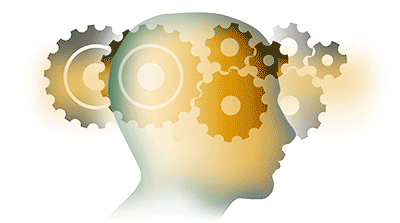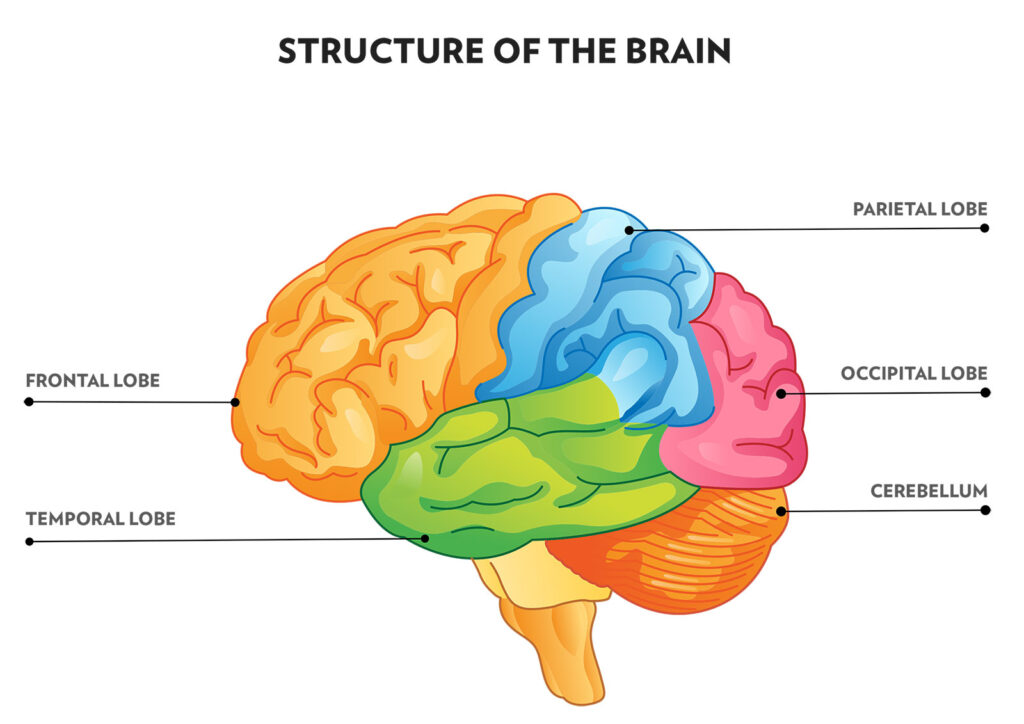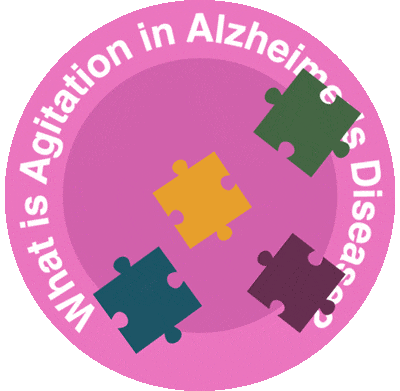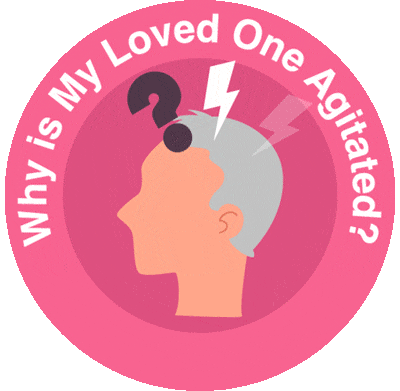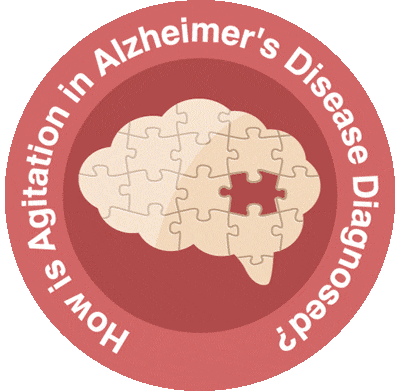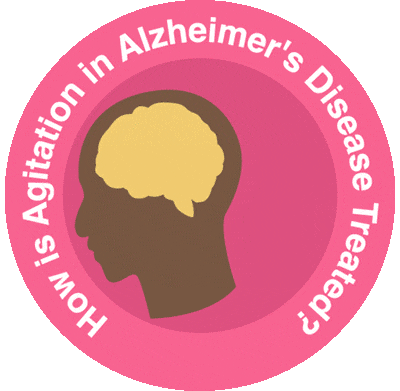
Why Is My Loved One Agitated?
It’s important that you view the agitation and aggression as a part of the disease and not as actions directed against you or others.
Agitation is the direct result of changes in the frontal lobe of the brain, which lies just behind the forehead. This part of the brain is where memory, judgment, abstract thought, creativity, voluntary movement, and an understanding of how to act in social situations are found. More than any other part of the brain, the frontal lobe is what makes us human.1,2
As the neurons, or brain cells, in the frontal lobe deteriorate due to the disease, you begin to see the behavioral changes so common in Alzheimer’s. Part of this deterioration involves chemicals called neurotransmitters that help brain cells communicate and which contribute to behavior. The most important ones are dopamine (linked to psychotic symptoms and aggressive or impulsive behaviors), serotonin deficiencies (associated with hostility, impulsivity, and aggression), and norepinephrine (associated with agitation and aggressive behavior).2,3
While the cause of agitation lies in the brain changes, certain situations can trigger an episode, including:
- Changes in environment, such as going out to dinner or to someone’s house
- Changes in routine
- Sundowning
- Being around new people
- Medication changes
- Fear
- Frustration
- Stress
- Noise
- Illness
References
- Senanarong V, Cummings JL, Fairbanks L, Mega M, Masterman DM, O’Connor SM, Strickland TL. Agitation in Alzheimer’s disease is a manifestation of frontal lobe dysfunction. Dement Geriatr Cogn Disord. 2004;17:14-20.
- Guy-Evans O. Frontal lobe: What it is, function, location & damage. Simply Psychology. 10/24/23 (www.simplypsychology.org/frontal-lobe.html). Accessed 11/3/23.
- Liu KY, Stringer AE, Reeves SJ, Howard RJ. The neurochemistry of agitation in Alzheimer’s disease: A systematic review. Ageing Res Rev. 2018;43:99-107.
